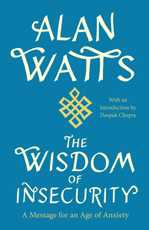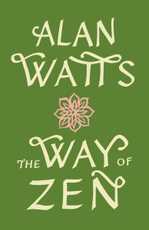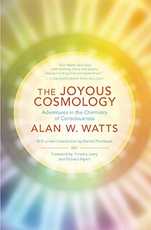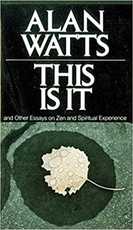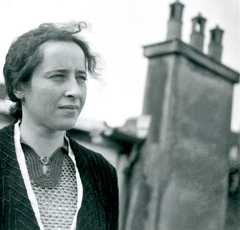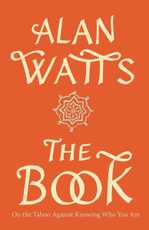

Alan Watts The Best 5 Books to Read
Alan Watts (1915 - 1973) was an English writer and popularizer of philosophy. He wrote over 27 books in his lifetime, and is best known for trying to bring Eastern philosophies and religions like Buddhism, Hinduism, Confucianism, and Taoism to a Western audience.
Though criticized by some as simplifying or misrepresenting the works he sought to popularize, Watts is heralded by others as being a crucial figure in helping bridge the philosophical gap between East and West, and during his life he had significant supporters in the Zen community.
This reading list consists of the best books by Alan Watts. After reading it, you’ll understand why Watts is famed for transposing profound philosophical insights from across the globe into accessible, engaging prose.
1. The Book: On the Taboo Against Knowing Who You Are, by Alan Watts
If you’re looking a book that offers a general summary of Watts’ views, then his 1966 The Book: On the Taboo Against Knowing Who You Are is commonly thought to provide a good all-round starting point.
Watts compellingly shares his own thoughts, and distills and adapts the Hindu philosophy of Vedanta to investigate what he believes to be the root of human conflict: that we each fundamentally misunderstand who we are.
Imbued with playful takedowns of the idea that the Self is separate from the Whole, this book offers a fantastic entry point to the general themes of Watts’ work and views.
2. The Wisdom of Insecurity: A Message for an Age of Anxiety, by Alan Watts
While The Wisdom of Insecurity: A Message for an Age of Anxiety was first published in 1951, its message is especially pertinent for our times.
Writing for an age of unprecedented anxiety, Watts draws on the wisdom of Eastern philosophies to explore how we can lessen our worries about the future, rein in our lamentations about the past, and place more of our energies into the time we actually inhabit: the present.
With its simple and direct style, The Wisdom of Insecurity: A Message for an Age of Anxiety remains one of Watts’ most popular works — and for good reason.
3. The Way Of Zen, by Alan Watts
In his highly influential 1957 The Way Of Zen, Watts provides his definitive introduction to Zen Buddhism.
This work played a significant role in introducing the principles and practices of this ancient religion and philosophy to a Western audience, and is still routinely celebrated today as a fantastic introductory text (for more here, see our reading list of the best books on Buddhism).
Watts splits his work into two sections, ‘Background and History’, and ‘Principles and Practice’, offering readers everything they need to begin understanding the enduring wisdom of Zen Buddhism.
In one concise email each Sunday, I break down a famous idea from philosophy. You get the distillation straight to your inbox:
💭 One short philosophical email each Sunday. Unsubscribe any time.
4. The Joyous Cosmology: Adventures in the Chemistry of Consciousness, by Alan Watts
In his 1962 The Joyous Cosmology: Adventures in the Chemistry of Consciousness, Watts poetically recounts his experiences with the psychedelic drugs LSD, mescaline, and psilocybin.
Going beyond the sixties counterculture movement, Watts explains how insightful such substances can be “when accompanied with sustained philosophical reflection by a person who is in search, not of kicks, but of understanding.”
A brief but powerful argument for owning the rights to our own brains and nervous systems, The Joyous Cosmology: Adventures in the Chemistry of Consciousness is among the best essays on psychedelics from the last few decades.
5. This Is It, by Alan Watts
Published in 1960, This Is It is a collection of six essays from Watts on subjects ranging from consciousness and metaphysics to living a good, authentic life.
For a snapshot of his views on a variety of topics, as well as how he imbued such views with wisdom from Eastern religions and philosophies, This Is It is a favorite among fans of Watts’ life and work — short yet powerful, deep, and wise.
Further reading
Are there any other books you think should be on this list? Let us know via email or drop us a message on Twitter or Instagram.
In the meantime, why not explore more of our reading lists on the best philosophy books:

View All Reading Lists
Essential Philosophy Books by Subject
About the Author

Get one mind-opening philosophical idea distilled to your inbox every Sunday (free)

From the Buddha to Nietzsche: join 14,000+ subscribers enjoying a nugget of profundity from the great philosophers every Sunday:
★★★★★ (50+ reviews for Philosophy Break). Unsubscribe any time.

Latest Breaks
Each philosophy break takes only a few minutes to read, and is crafted to expand your mind and spark your curiosity.
